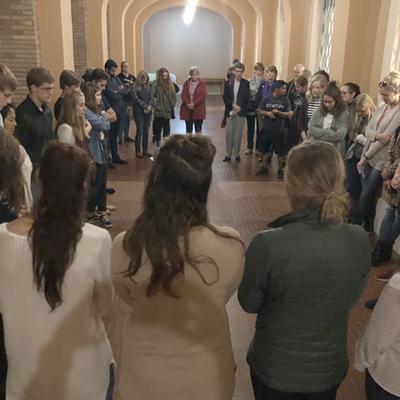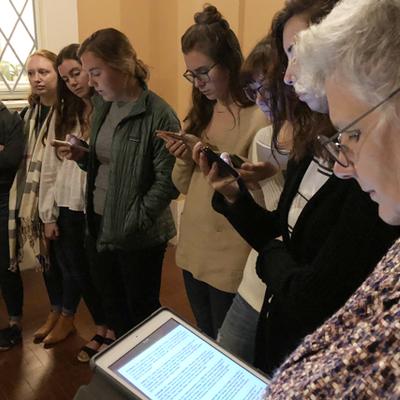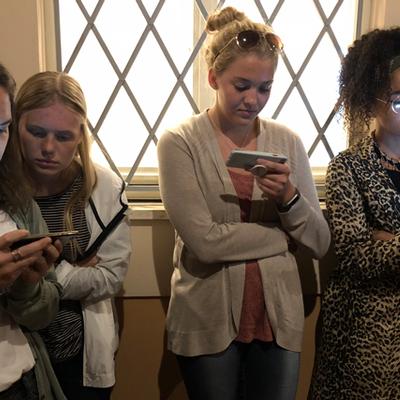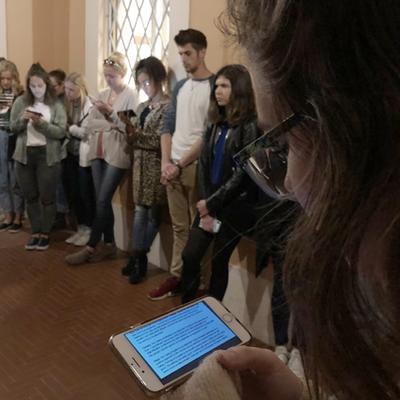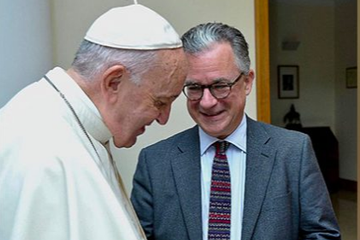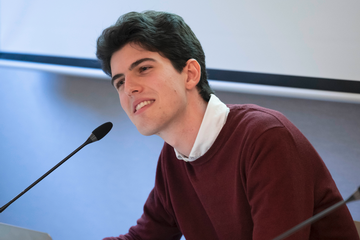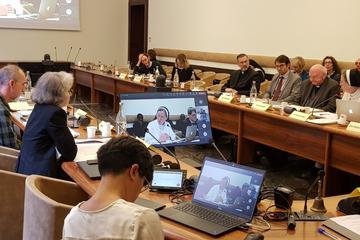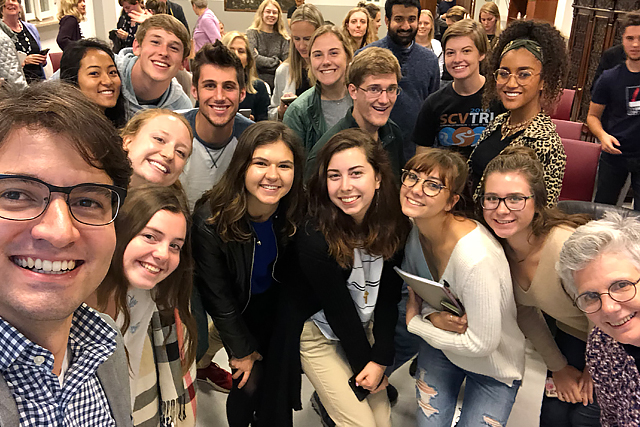
By Elena Dini
ROME — Lay Centre alumnus Filipe Domingues was the speaker at The Lay Centre’s third VPI conference this fall.
In his presentation, titled “Selflessness in the Age of Selfies,” Domingues said people think a lot about how the media impacts their life during exceptional events, but actually the impact they have is relevant to so many people’s everyday actions. People read the news, see the weather forecast, find a location on Google maps, and even date a person through their technological devices, he said.
He shared social science research and media theories that analyze how societies have gone from being group-based to being characterized by networked individualism. In the past, and somewhere in the world, group-based societies still exist, where groups are the actors and make choices that frame individual lives. After the French Revolution, starting in the West, the individual became the central point of reference. Now it is individual successes that support the wellbeing of the whole society and not the other way around, he said.
In addition to the new opportunities offered by the digital world, people are also faced with new challenges. Social networks have become an important distraction, and the time spent interacting on these networks is subtracted from other activities and in-person relationships, he said.
It is also not easy to determine the boundaries between being online and being offline. For instance, a person might be in conversation with someone in person, get bored and decide to send an email. Personal relationships definitely suffer of this, he said. Notifications become so important and it gets difficult to decide not to check what is happening: one might be missing out on something important. Risks may be even more serious: psychological struggles, addictions, stalking and cyber-bullying.
While social media facilitates community-building, it also offers a form in which it is easy to disagree; it also seems that apologizing online is complicated and unusual. Social media users tend to ignore and block the person with whom they enter into a disagreement online, rather than solving the issue, he said.
Social media also allows people to hide their feelings and frailties; they don’t have to share everything and they usually share only the best moments of their lives. For many users, it seems that everyone is always happy and travelling, and the individuals looking at these social media posts are the only ones who are alone, and maybe sad, at home, he said.
Social media is more about building an identity than about dialogue. We aim to shape our identity and show others who we are, he said. In order to build our identity, we need to interact with others but we might forget that the other has needs, too, or that there is someone else on the other side of the screen.
The recently concluded Synod of Bishops on young people considered the important issue of social media, said Domingues, who served as an expert at the Synod. “How does technology today, with its new opportunities and unprecedented dangers, contribute to determining young people’s identity and way of life?” the bishops asked young people. The answers they received allowed them to identify some main areas of reflection: information and knowledge; life in society; consumption practices; identity-building; transforming relationships; psychological struggles; the use of time; and exposure to new dangers, he said.
Social media tend to reinforce selfishness and narcissism. Therefore, people need to make a conscious effort to meet the other: an exercise of selflessness that might be called “solidarity,” said Domingues. It is more than a kind and altruistic gesture, it is engaging with the other, being concerned with him or her. Solidarity is about empathy, it is the capacity to understand how the other feels. Caring is important not only because it is a duty but because it is the right thing to do, he said.
https://prezi.com/view/paGzjg8XI3FPTIdtHMpZ/
Domingues is a journalist and a doctoral candidate in social sciences at the Pontifical Gregorian University; he recently served as an expert at the Synod on Young People, the Faith and Vocational Discernment. He hails from Brazil.
Watch the full lecture below:
